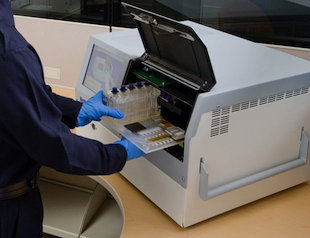In recent years public health authorities have raised concern that many strains of Chlamydia trachomatis, a bacterium that is the most common cause of sexually transmitted infections around the world, can be missed by conventional genetic tests. A mutation in part of its genomc can make Chlamydia undetectable by the most commonly used tests.

The Chlamydia tests are performed in a microfluidic cassette platform and data is returned about an hour after sample collection. In comparison, standard tests take a day or longer.
Most infections are asymptomatic but left untreated, Chlamydia infection can lead to pelvic inflammatory disease, infertility and ectopic pregnancy. It is also a Ray Ban online leading cause of blindness in developing countries.
Microbial geneticist Tim Read at Emory has been collaborating with Deborah Dean at Children’s Hospital Oakland and the Massachusetts firm NetBio to develop a fast, accurate and sensitive genetic test for Chlamydia.
“We used tools that were developed initially to answer basic scientific questions,” Read says. “We compared multiple genomes of C. trachomatis to find targets that would work across a broad selection of bacterial strains.”
The results of a head-to-head comparison of the new test against a standard commercially available test for Chlamydia were published in PLOS One in December. Samples came from 263 women in the San Francisco Bay area. The sensitivity and specificity of the assay were 91 percent and 100 percent, compared to 62 percent and 96 percent for the the commercial test.
The new test combines 9 separate genetic probes at different spots in the genome, reducing the chances of false negatives.
The Emory/Oakland/NetBio team has also been funded by the National Institute of Allergy and Infectious Diseases to develop a similar std testing process for Neisseria gonorrhoeae, a bacterium that causes another major sexually transmitted infection. Separately, NetBio is being funded by the Federal Ray Ban outlet Bureau of Investigation, Department of Defense and Department of Homeland Security to develop a rapid DNA processing system for forensic investigators.

